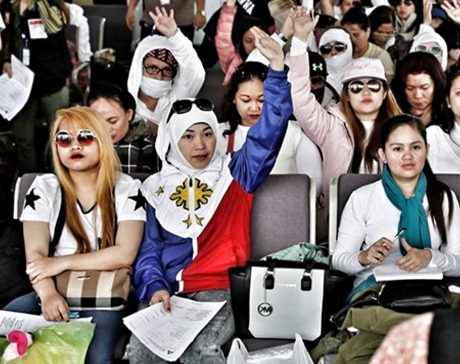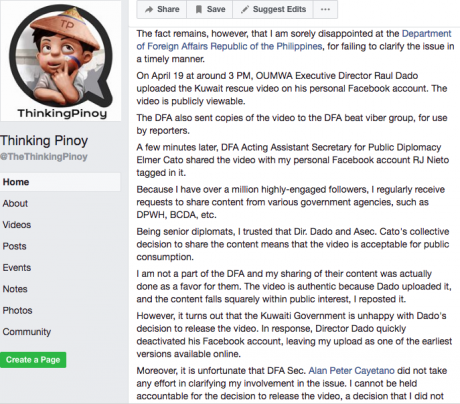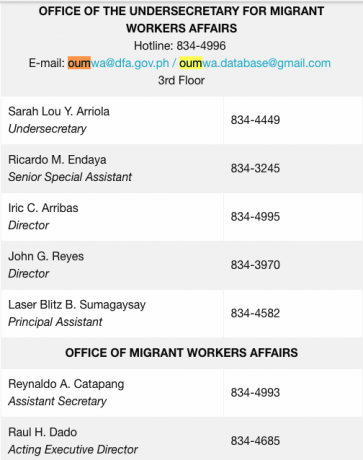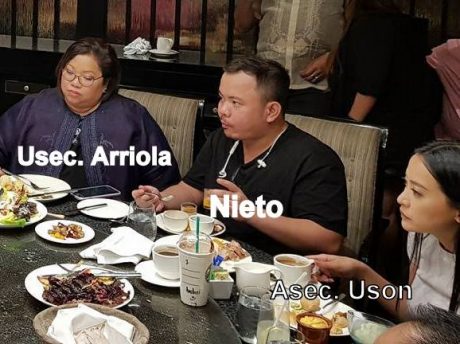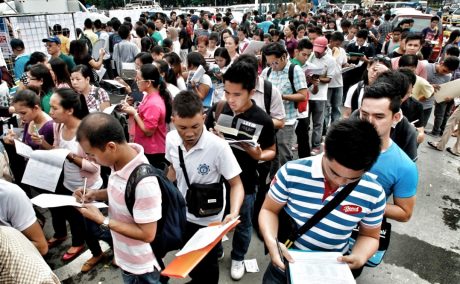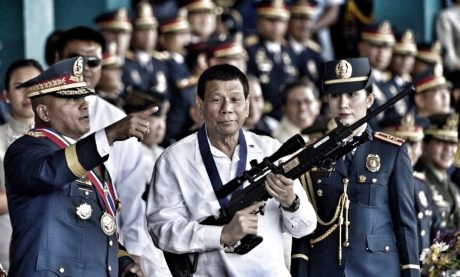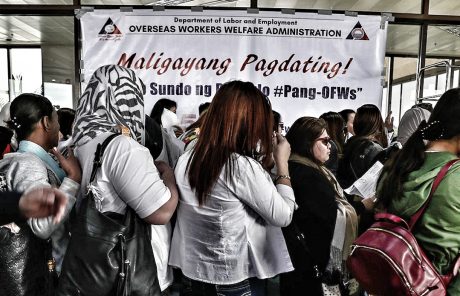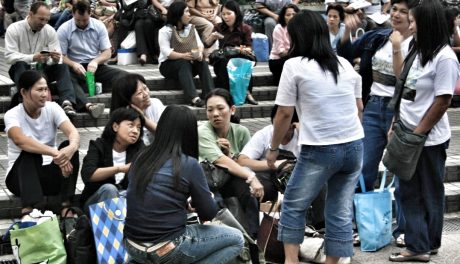
We see today the Philippines has an obese economy. Its bones (infrastructure and capital base) are buckling under the weight of sugar-fed fat it accumulated through OFWism and consumerism. Overseas Filipino Workers (OFWs) are the equivalent of revenue candy fed to a malnourished economy. They provide a short-term energy fix that gets that next meal but, in the long run, causes more problems and sustains bad habits.
The favourite excuse Filipinos like telling themselves is that OFWs exist in the enormous numbers we suffer today because of “government mismanagement” of the economy. Perhaps so. But, see, we must consider that where there possibly is such “mismanagement” then and now, the other inconvienient truth is that there is also the underlying character of the Filipino then and now too. The earlier is the popular topic, the latter the more confronting but less “polite” to discuss. The conversation around the earlier is the easy space to inhabit. The latter conversation about how the fundamental character of the Filipino contributes to the persistence of the OFW cancer is the more uncomfortable space.
What is interesting is the favourite argument of OFW apologists — that OFW’s contribute immensely to the Philippine economy. In reality, this “counter”-argument actually further highlights the the point I make — that an economy dependent on OFW remittances is not a healthy economy. It is a sick addicted economy that is keeping its fire burning by frantically tossing paper into it rather than sitting back relaxed and watching logs get consumed sustainably.
Filipinos churn out warm bodies then deploy them overseas as a quick fix to “save” a society that has never learned to build domestic capital sustainably. They get burnt out in the slave economies of the Arab world then come back a depleted resources to a society hollowed-out by a half-parented generation — a generation that, not surprisingly, will have been indoctrinated in the OFW-as-hero narrative and, as such, be of the mindset that going overseas to be “heroic” is the career path of choice.
The only mismanagement on the government’s part is the continued propagation of the misinformed narrative that OFWs are heroes and that OFWism is a noble long-term pursuit rather than the dangerous addictive stopgap solution that it actually is. Think jeepneys, tossing garbage and sewage into esteros, and using traffic enforcers as traffic cones along EDSA. OFWism fits right in with those classic case-studies of Filipino dysfunctional thinking. OFWism is a national policy that occupies a special exhibit in that big growing Museum of Filipino Pwede Na Yan Solutions. Anybody who believes OFWs are a subject of “national pride” needs to have their pointed heads examined. OFWs are not the Philippines’ future. OFWism is a big black hole where aspirations to be a great nation and people go to jump into, never to be seen again.

